Cameroon grants ‘special status’ its to restive regions. They don’t feel special
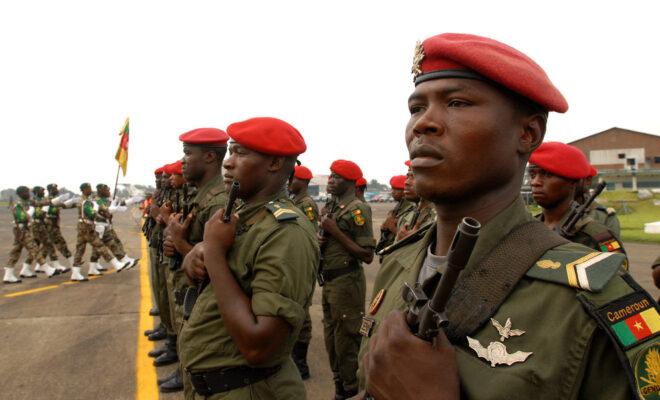
The government says a new bill removes Anglophone separatists’ reasons to fight, but what’s actually in it?
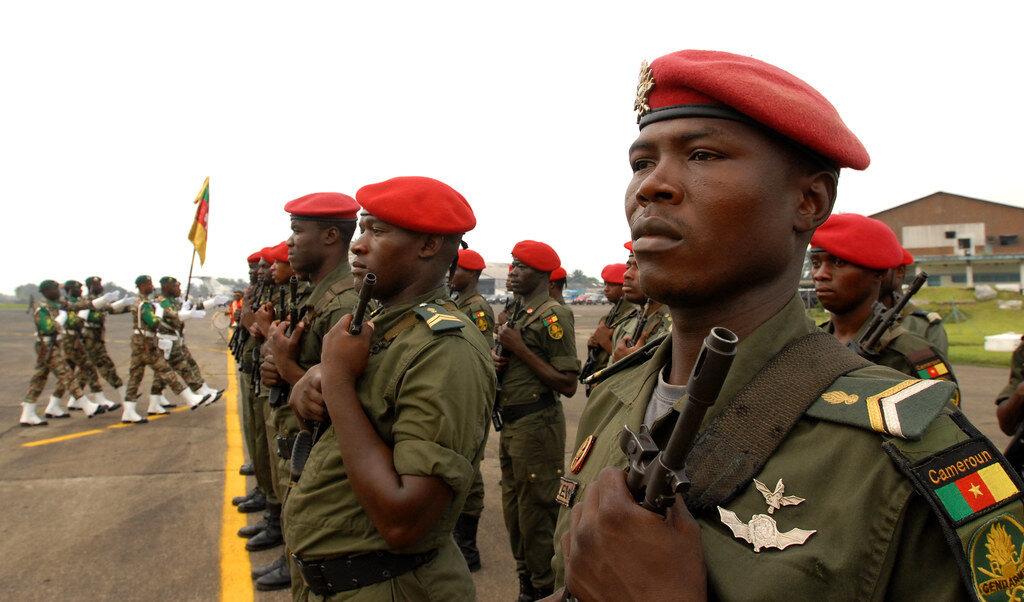
Despite recent developments, Cameroon has continued its combative military operations in the Anglophone regions. Credit: Staff Sgt. Whitney Hughes.
In the last week of 2019, Cameroon’s parliament approved a bill that will grant “special status” to the country’s two Anglophone regions. This initiative was a result of the Grand National Dialogue that the government convened in October purportedly to resolve the war of secession that has killed at least 3,000 people and displaced over half a million since its outbreak in 2017.
The government says that awarding “special status” to the English-speaking Northwest and Southwest regions will give Cameroon’s Anglophone minority greater autonomy over local affairs and settle historical grievances. According to the administration of President Paul Biya, this will mean secessionist forces will no longer have a reason to fight.
For their part, separatists have roundly rejected the measure as illegitimate. This is at least in part due to the fact it emerged out of a Grand National Dialogue that few outside of the ruling CPDM party regarded as a genuine effort to end the conflict. All secessionist factions as well much of civil society boycotted the talks, while opposition politicians that did attend, such as Akere Muna, walked out in protest over the lack of discussion on controversial topics such as the form of the state.
How special is special?
Nonetheless, it is worth examining the contents of the “special status” on its own merits.
To begin with, there is everything that will not change under the bill. For instance, the president will still appoint governors – who can come from outside the region and be Francophone – to manage state policy at the regional level. The central government in Yaoundé will still select Divisional Officers to govern districts. Meanwhile, the national government will retain significant control over local government resources, including the power to seize council-owned land “where national defense or public order requirements dictate”.
The bill also continues the government’s preference for establishing national committees to discuss contentious issues such as decentralisation and local finance, an approach that has led to little change over several years.
What will change?
Perhaps most significantly, the bill will establish various indirectly-elected organs with semi-administrative responsibilities. Each region will have a new bicameral Regional Assembly made up a House of Chiefs composed of 20 traditional leaders and a House of Regional Representatives composed of 70 members. The latter will be selected by municipal councils, but it is not specified how the chiefs will be chosen. The two Anglophone regions will also institute a new Regional Executive Council composed of eight members to be selected by regional councils. What powers the Regional Assembly and Regional Executive Council will have, however, remains unclear. In many cases, it is likely their responsibilities will largely be determined by laws implemented in Yaoundé.
The bill also gives mayors additional powers regarding educational and medical institutions in their municipalities, but it does not change the underlying governance structure that has allowed Yaoundé to manage the affairs of local municipalities for decades.
Continuing the war
Although the bill has been passed, the government has not yet provided a timeline for its implementation. This is significant given that it is renowned for taking an extraordinarily long time to implement initiatives. At the moment, the government is also focusing much of its attention and resources on the legislative and municipal elections scheduled for early-February.
In the meantime, it is notable that its combative military operations have continued. On New Year’s Day, for example, the military burnt down a village in the division of Lebialem. It has also been detaining large numbers of young men in urban areas of the Southwest region. In many instances, detainees have been taken to a secret detention facility in Buea and subjected to severe torture until their families pay a bribe to get them released. In his New Year’s address, President Biya reiterated a hardline message by promising that the military would carry out its duty “without weakness”, while there have been continuous deployments of military personnel to the two Anglophone regions in recent weeks.
The secessionists, who are internally extremely divided, have maintained unity in declaring the “special status” as illegitimate. They have also denounced the upcoming legislative and municipal elections and have said that they will use force to prevent them from taking place in the two English-speaking regions. They have acted upon this by burning down the homes of two parliamentarians and kidnapping more than twenty politicians of the opposition SDF party, threatening to kill them if they do not disavow their party allegiance. They also announced a planned five-day lockdown around the elections to prevent people from voting.
All of these events come as the so-called Swiss Process, aimed at resolving the conflict through dialogue, appears to have reached a stalemate. The Cameroonian government insists the “special status” initiative is sufficient to address the grievances of the Anglophone population, while secessionist leaders have not met since autumn 2019. There has been intense infighting among separatist factions, including a recent mutiny that resulted in a commander by the name of “General Divine” being killed by his own fighters. While some fighters remain adamant their struggle will lead to independence, others have given up on it entirely.
In all likelihood, this means that the two sides will continue to fight whilst wreaking havoc on civilians in the two Anglophone regions. The special status bill will do little to change this.


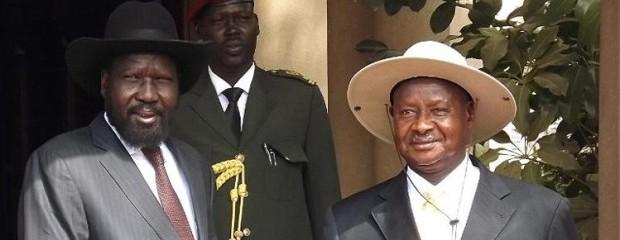
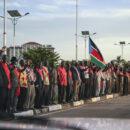
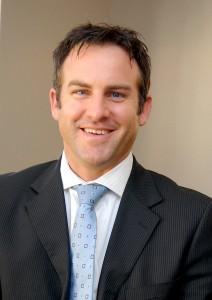


International community have their time to scorn at the pure right of minority
Cameroun should embrace peace, President Paul Biya and leaders of Cameroun Francophone regions should hand over power to their anglophone brothers for the sake of peace, unity and fairness in governance.
Fairness and equity will promote sustainability and brotherliness the Cameroonians were known for, and let this senseless killings of fellow brothers cease henceforth, stop wasting the blood of fellow countrymen who agitate for freedom from Francophobia oppression.
African politics, very hard to understand. Everything only or mostly works on paper
Dear Reader,
To call the Biya regime a “government” is really a bad joke. Long-term dictator on the mercy of France Paul Biya, 87, has rigged the elections again and put the actual election winner Maurice Kamto in prison, after burning all the ballots. After a lot of pressure, Kamto is free again, but Biya continues his war crimes against the “Anglophones”, whose “regions” are actually not even legally part of Cameroon, because a union between the former Trust Territory of Southern British Cameroons and French Cameroun was never properly ratified. Biya wages war against the “Southern Cameroonsians”, because they are the ones who dare to speak up against Biya’s notorious human rights and constitution violations, not to mention his catastrophic domestic policies which are nothing less than a shithole of total corruption and zero service to the people, and because in Southern Cameroons, which calls itself Ambazonia since 1984, are the most natural resources, which Biya wants to exploit for international corporations and Swiss banks.
The way the author Maxwell Bone is putting the legitimate defense violence of the Ambazonians and the illegitimate attacking and brutal occupation and massacring violence of the French Camerounaise Biya regime into the same pot, is really awful. As if the socalled “Grand National Dialogue” Mr. Biya held in the French Camerounaise capital Yaoundé ever properly invited or listened to the Ambazonian (=Southern Cameroonsian) leaders! As if the root of the problem: Francafrique’s exploitative neocolonialism, sponsoring a puppet dictatorial regime, would not be obvious for everybody! As if the brave struggle of George Washington against the English colonizer would be totally forgotten and African peoples would not have any right to liberate themselves!
The Ambazonians ARE already recognized as an independent people with right to self-determination by UN Resolutions 1514 and 1608! And they got independence from the British at another date as the French Camerounaise got by the French! And the intended confederacy of two equal political entities was never respected by French Cameroun, instead French Cameroun annexed Southern British Camerouns and never treated them fairly since 1972. And all what the Ambazonians want is a restoration of the already given status, not a “special status” inside the same French crookery. Who on earth will every say yes to a special status offered by a hegemonial power which is doing genocide against you?
Would Maxwell Bone say yes to a French offer to Maryland of getting special status inside France, after France has burnt down 400 villages in Maryland and taken 5000 prisoners and displaced 500000?
I hope you wake up, dear reader, and you are not uncritically accepting the narratives of the neocolonial concept of Françafrique, promoted by the author,
Christoph Hans Messner
A friend forwarded your news brief to me
I find it very interesting , well covered.
Dear Readers
Even if Biya leaves office, for as long as the Anglophone problem is not resolved and the Anglophone territory (now held captive in La Republic du Cameroon) is not given her independence or at least a federation, the France-controlled government of Cameroon is wasting their time.
There has been too much injustice, too much blood and too many failed attempts at bribing the real leaders who are the Anglophone people themselves. This whole issue could have been peacefully resolved in 2016 when it started, but because of the arrogance of the biya administration the country has been plunged into a useless war that has taken innocent lives.
When the conflict began, everyone called for dialogue, from the teachers and lawyers who led the strike to the churches in Cameroon, but of course after ruling like a king for 36 years, the octogenarian forgot what it meant to govern. You cannot govern a people who don’t want to be governed by you. The Anglophone issue in Cameroon has proven this beyond doubt.
The biya administration is using propaganda to give people the impression they are winning the war, they aren’t! if they were, they would not be talking about “special status”. This is not a government that listens to its people, it dictates to its people, so if they have come to the point where they are willing to grant whatever status to the two regions, then it is because they are on their knees.
What I do not understand is how 80% of the francophone population of the country keep on complaining about the government and yet do nothing about it? Yet, two small regions in the country have shaken the government enough to drag the war for three years and counting. My advice, the Anglophones need to keep up the fight and get their freedom now or never.
anti-malaria drug chloroquine https://chloroquineorigin.com/# what is hydrochloroquine
https://cialiswithdapoxetine.com/ cialis coupon
hydroxychloroquine interactions does hydroxychloroquine cause hair loss hcos pill